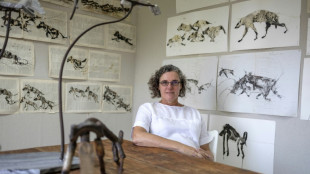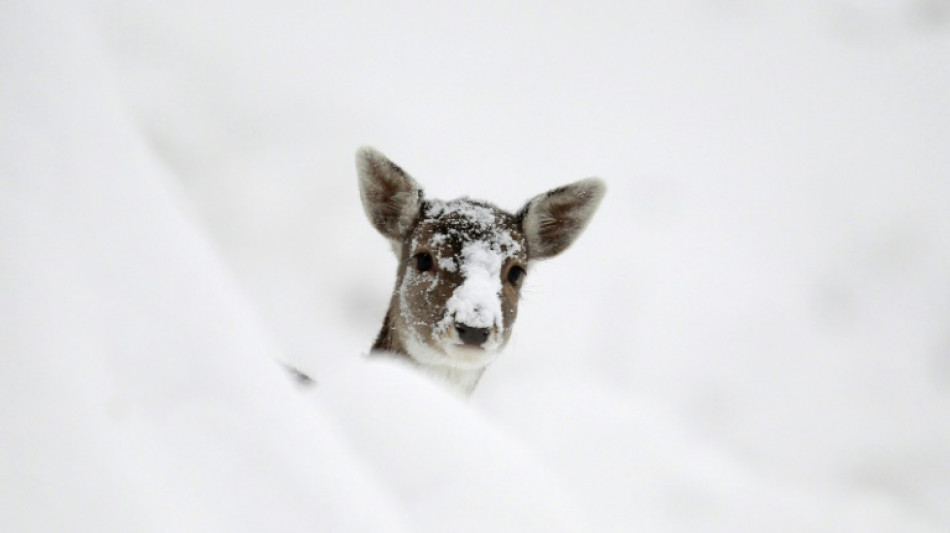
-
 Where Trump's tariffs could hurt Americans' wallets
Where Trump's tariffs could hurt Americans' wallets
-
Trump says 'very close to a deal' on TikTok

-
 Trump tariffs on Mexico: the good, the bad, the unknown
Trump tariffs on Mexico: the good, the bad, the unknown
-
Postecoglou denies taunting Spurs fans in Chelsea defeat

-
 Oscar-winning Palestinian director speaks at UN on Israeli settlements
Oscar-winning Palestinian director speaks at UN on Israeli settlements
-
With tariff war, Trump also reshapes how US treats allies

-
 Fernandez fires Chelsea into fourth as pressure mounts on Postecoglou
Fernandez fires Chelsea into fourth as pressure mounts on Postecoglou
-
South Korea court to decide impeached president's fate

-
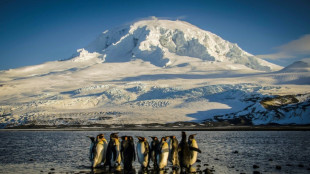 Penguin memes take flight after Trump tariffs remote island
Penguin memes take flight after Trump tariffs remote island
-
E.T., no home: Original model of movie alien doesn't sell at auction
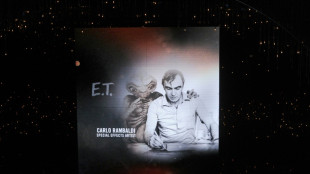
-
 Italy's Brignone has surgery on broken leg with Winter Olympics looming
Italy's Brignone has surgery on broken leg with Winter Olympics looming
-
Trump defiant as tariffs send world markets into panic
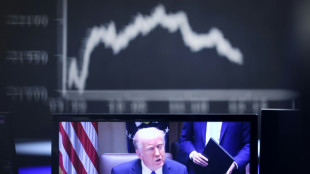
-
 City officials vote to repair roof on home of MLB Rays
City officials vote to repair roof on home of MLB Rays
-
Rockets forward Brooks gets one-game NBA ban for technicals

-
 Pentagon watchdog to probe defense chief over Signal chat row
Pentagon watchdog to probe defense chief over Signal chat row
-
US tariffs could push up inflation, slow growth: Fed official

-
 New Bruce Springsteen music set for June 27 release
New Bruce Springsteen music set for June 27 release
-
Tom Cruise pays tribute to Val Kilmer
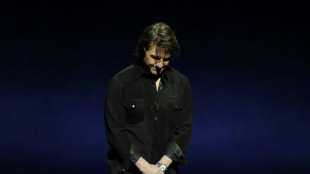
-
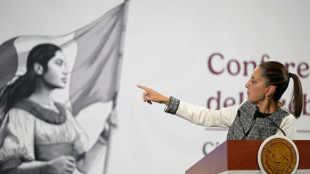 Mexico president welcomes being left off Trump's tariffs list
Mexico president welcomes being left off Trump's tariffs list
-
Zuckerberg repeats Trump visits in bid to settle antitrust case

-
 US fencer disqualified for not facing transgender rival
US fencer disqualified for not facing transgender rival
-
'Everyone worried' by Trump tariffs in France's champagne region

-
 Italy's Brignone suffers broken leg with Winter Olympics looming
Italy's Brignone suffers broken leg with Winter Olympics looming
-
Iyer blitz powers Kolkata to big IPL win over Hyderabad

-
 Russian soprano Netrebko to return to London's Royal Opera House
Russian soprano Netrebko to return to London's Royal Opera House
-
French creche worker gets 25 years for killing baby with drain cleaner

-
 UK avoids worst US tariffs post-Brexit, but no celebrations
UK avoids worst US tariffs post-Brexit, but no celebrations
-
Canada imposing 25% tariff on some US auto imports

-
 Ruud wants 'fair share' of Grand Slam revenue for players
Ruud wants 'fair share' of Grand Slam revenue for players
-
Lesotho, Africa's 'kingdom in the sky' jolted by Trump
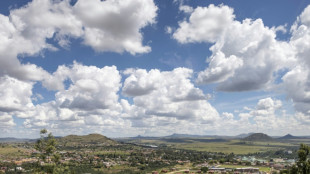
-
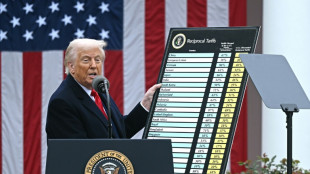 Trump's trade math baffles economists
Trump's trade math baffles economists
-
Gaza heritage and destruction on display in Paris
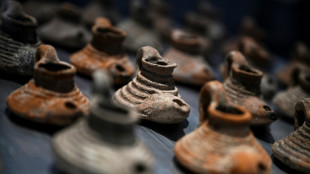
-
 'Unprecedented crisis' in Africa healthcare: report
'Unprecedented crisis' in Africa healthcare: report
-
Pogacar gunning for blood and thunder in Tour of Flanders

-
 Macron calls for suspension of investment in US until tariffs clarified
Macron calls for suspension of investment in US until tariffs clarified
-
Wall St leads rout as world reels from Trump tariffs
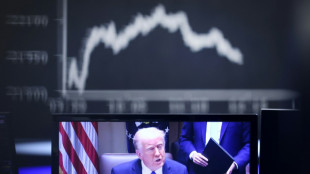
-
 Mullins gets perfect National boost with remarkable four-timer
Mullins gets perfect National boost with remarkable four-timer
-
Trump tariffs hammer global stocks, dollar and oil

-
 Authors hold London protest against Meta for 'stealing' work to train AI
Authors hold London protest against Meta for 'stealing' work to train AI
-
Tate Modern gifted 'extraordinary' work by US artist Joan Mitchell

-
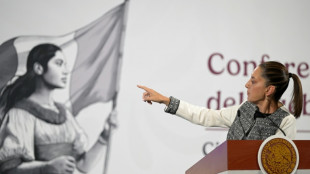 Mexico president welcomes being left off Trump's new tariffs list
Mexico president welcomes being left off Trump's new tariffs list
-
Tonali eager to lead Newcastle back into Champions League

-
 Lesotho hardest hit as new US tariffs rattle Africa
Lesotho hardest hit as new US tariffs rattle Africa
-
Stellantis pausing some Canada, Mexico production over Trump auto tariffs

-
 Rising odds asteroid that briefly threatened Earth will hit Moon
Rising odds asteroid that briefly threatened Earth will hit Moon
-
Italy reels from Brignone broken leg with Winter Olympics looming

-
 Is the Switch 2 worth the price? Reviews are mixed
Is the Switch 2 worth the price? Reviews are mixed
-
Ancelotti’s tax trial wraps up in Spain with prosecutors seeking jail

-
 Civilians act to bring aid to Myanmar earthquake victims
Civilians act to bring aid to Myanmar earthquake victims
-
US trade gap narrows in February ahead of bulk of Trump tariffs


Mammals became warm-blooded later than thought: study
The ancestors of mammals started to become warm-blooded around 20 million years later than previously thought, researchers suggested Wednesday, after analysing inner-ear fossils hoping to solve "one of the great unsolved mysteries of palaeontology".
Warm-bloodedness is one of the quintessential characteristics of mammals, along with fur, but exactly when they first evolved the feature has long been a subject of debate.
Previous research has indicated that the ancestors of mammals began evolving warm-bloodedness, or endothermy, around 252 million years ago -- around the time of the Permian extinction, known as the "Great Dying".
However figuring out the timeline has proved difficult.
"The problem is that you cannot stick thermometers in your fossils, so you cannot measure their body temperature," said Ricardo Araujo of the University of Lisbon, one of the authors of a new study in the journal Nature.
He was part of an international team of researchers that found a new way to determine how body heat changed throughout time, by examining the semicircular canals in the inner ears of 56 extinct species of mammal ancestors.
Fluid runs through the tiny ear canals, which help animals keep their balance.
The researchers realised that as body temperatures warmed up, so did the ear fluid.
Araujo gave the example of oil used to fry hot chips.
Before you warm the oil up, it is "very viscous, very dense," he told AFP.
"But then when you heat it up, you'll see that the oil is much runnier, it flows much more easily."
The runnier ear fluid led to animals evolving narrower canals -- which can be measured in fossils, allowing the researchers to track body temperature over time.
Unlike previous research on this subject, the team developed a model that not only works on extinct mammal ancestors, but also living mammals, including humans.
"It can look at your inner ear and tell you how warm-blooded you are -- that's how accurate the model is," lead study author Romain David of London's Natural History Museum told AFP.
Using the model, they traced the beginnings of warm-bloodedness to around 233 million ago, in the Late Triassic period.
- 'Not a gradual, slow process' -
Michael Benton, a palaeontologist at Britain's University of Bristol who was not involved in the study, said the new metric "seems to work well for a wide array of modern vertebrates".
"It doesn't just provide a yes-no answer, but actually scales the 'degree' of endothermy in terms of actual typical body setpoint temperature," he told AFP.
Benton, whose previous research had given the 252 million years date, said the transition to warm-bloodedness likely took place in stages, and "there were several significant prior steps before this semicircular canal switch".
Araujo said the new research suggested that warm-bloodedness came about simply and "very quickly in geological terms, in less than a million years".
"It was not a gradual, slow process over tens of millions of years as previously thought".
David said it seemed unlikely that warm-bloodedness would begin around the extinction event 252 million years ago, because global temperatures were extremely hot then.
That would have been a disadvantage for warm-blooded animals -- but they could have thrived as temperatures cooled in the following millions of years.
"Being an endotherm allows you to be more independent of the whims of the climate, to run faster, run longer, explore different habitats, explore the night, explore polar regions, make long migrations," Araujo said.
"There were a lot of innovations at the time that started to define what a mammal is -- but also ultimately what a human being would be."
M.Thompson--AMWN

